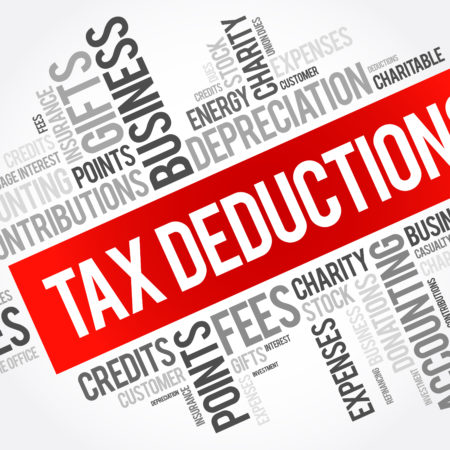Deductible expenses small business owners can claim often go unnoticed, leading to higher tax bills than necessary. Tax season already brings unease for small business owners — between daily operations and ensuring financial accuracy, it’s easy to miss potential deductions. But understanding what counts as a deductible expense isn’t just about saving money; it’s about building financial resilience and keeping your business strong.
Knowing the full range of deductible expenses for small businesses can transform your financial outlook. Many entrepreneurs focus only on the obvious costs while missing hidden savings opportunities. By learning both common and lesser-known deductions, you can lower your taxable income and retain more of your hard-earned revenue. This guide walks you through the most overlooked deductible expenses small business owners should claim — from home office deductions to bad debt. Let’s explore how to make tax season work in your favor.
Commonly Overlooked Deductible Expenses for Small Businesses
Many small business owners know about rent, utilities, and salaries. However, several other significant deductible expenses for small businesses are often forgotten.
1. Home Office Expenses
With remote work now the norm, more entrepreneurs operate from home. If you have a dedicated space used solely for business, you can claim the home office deduction — one of the most valuable deductible expenses small business owners overlook.
You can deduct a portion of your rent or mortgage, utilities, and insurance. For instance, if your office takes up 10% of your home, you can usually deduct 10% of eligible costs. Always keep detailed records since the IRS requires proof that the space is exclusively used for business. For more information on small business office setup, check out How to Start an LLC.
2. Vehicle and Travel Costs
If you use your personal car for business, you can deduct that usage. There are two methods: the standard mileage rate, where you track business miles driven, or the actual expense method, where you deduct actual costs such as gas, repairs, insurance, and depreciation based on the percentage of business use. In addition, flights, lodging, and meals during business travel qualify as deductible expenses for small businesses.
You can calculate your mileage deduction using tools like FINSYNC, which simplifies business expense tracking and reimbursement.
3. Education and Training Expenses
Education that maintains or improves your skills in your current field is deductible. For example, a graphic designer can deduct a course on new design software. This is one of those deductible expenses small business owners often underestimate. If you’re looking for professional courses or certification resources, explore L.A. Law Library and The Street for financial education opportunities.
4. Marketing and Advertising Costs
Every promotional dollar spent can reduce your taxable income. Deduct expenses for website design and hosting, online ads (Google, Meta, etc.), printed materials, and event sponsorships. Advertising is both a growth tool and a key deductible expense small business owners shouldn’t ignore.
If you’re running digital campaigns or donation drives, you can learn more about optimizing campaigns through Double the Donation or Stripe for payment integrations.
5. Software and Subscriptions
Digital tools like accounting, CRM, or project management software are essential and fully deductible. Tracking these smaller monthly charges ensures no deductible expenses for small business are missed. Consider solutions from Padgett Advisors or FINSYNC to automate your bookkeeping and expense tracking.
Lesser-Known Deductible Expenses for Small Businesses
Some deductions fly under the radar — yet they can lead to big savings.
6. Startup Costs
Before you officially launch, the IRS allows up to $5,000 in startup cost deductions. These deductible expenses small business startups include market research, business plan creation, and legal setup fees. For startup funding and grant opportunities, explore Amber Grants for Women and Diversification.com to understand financing options for new ventures.
7. Bad Debt
If a client never pays and you’ve already reported that income, you can deduct it as bad debt. This deduction helps small businesses maintain accurate financials while offsetting losses. For legal resources and collections guidance, visit Weisberg Tax or L.A. Law Library.
8. Insurance Premiums
Insurance premiums, including liability, property, and health insurance (for self-employed owners), qualify as deductible expenses that small business owners can claim each year. To compare business insurance options, check out The UPS Store for small business solutions or Box-n-Go for secure business storage and logistics services.
How to Maximize Your Deductible Expenses
Success with deductions depends on record-keeping. Use accounting software or spreadsheets to track every expense and maintain receipts and invoices. A dedicated business credit card simplifies this process.
For professional tax preparation tips, see Bette Hochberger or Weisberg Tax, both experts in helping small businesses maximize savings.
You can also find free resources at State Solar and Yahoo Finance to stay updated on government incentives and tax credit programs.
Tax laws evolve, so consulting a professional ensures full compliance and optimized savings. A tax expert can uncover deductible expenses small business owners often miss and align them with new IRS updates.
Final Thoughts
Understanding and claiming all eligible deductible expenses for small businesses directly strengthens your bottom line. From home offices to insurance, every deduction matters. By staying organized, consulting professionals, and knowing your rights, you’ll navigate tax season with confidence, keeping more of what your business earns.
For further reading, visit LiveOps for flexible small business solutions, Brutalist Report for business insights, or eMacroMall to explore useful digital resources for entrepreneurs.
Frequently Asked Questions
What business expenses can I write off?
You can write off any expense that is both “ordinary” and “necessary” for your business. This includes a wide range of costs, such as office supplies, marketing, employee salaries, software subscriptions, business travel, and professional development.
Can I deduct retirement plan contributions?
Yes, contributions made to a retirement plan for yourself and your employees, such as a SEP IRA or SIMPLE IRA, are generally deductible. This is a valuable way to save for the future while reducing your current taxable income.
Is tax preparation a deductible expense?
Absolutely. The fees you pay to a tax professional for preparing your business tax returns are considered a business expense and are fully deductible. This makes seeking professional help even more worthwhile.
Can I deduct expenses if my business is not yet profitable?
Yes. You can still deduct your business expenses even if your business operates at a loss. In many cases, you can use that business loss to offset other income you may have.






